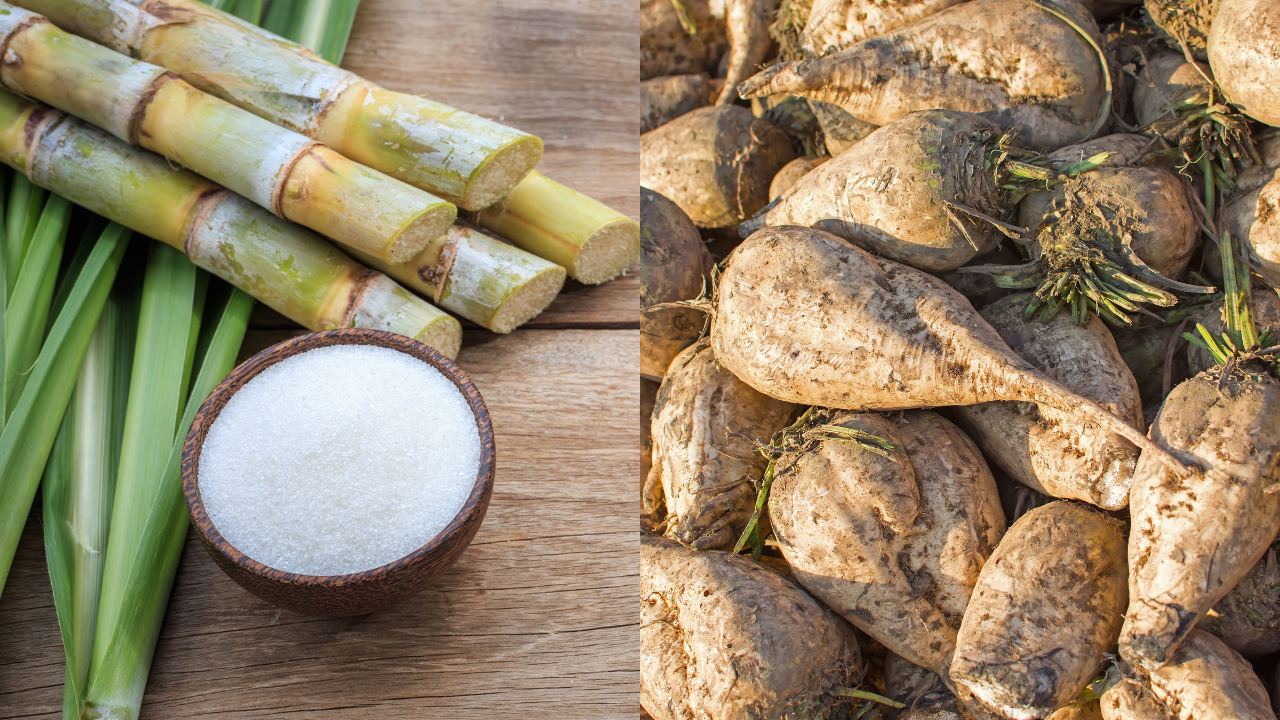A key factor in the beet sugar vs cane sugar debate is how each type impacts cooking.
A key factor in the beet sugar vs cane sugar debate is how each type impacts cooking.
Blog Article
Discover the Uses and Benefits of Beet Sugar Vs Cane Sugar in Your Daily Diet Regimen
Checking out the distinct qualities of beet and cane sugar reveals greater than simply their sweetening capacities; it highlights their distinct influence on wellness and cooking arts. Beet sugar, understood for its subtle taste, is frequently preferred in fragile desserts, whereas cane sugar, with its hint of molasses, adds splendor to durable meals. Each type holds its own nutritional account and glycemic effects, inviting a deeper understanding of their functions in a balanced diet and lasting intake practices.
Beginning and Manufacturing Processes of Beet and Cane Sugar

The unique environments and dirt types required for expanding sugar beetroots and sugarcane contribute to distinctions in their farming techniques and geographical distribution, influencing the business economics and sustainability of their manufacturing. beet sugar vs cane sugar.
Nutritional Contrast In Between Beet Sugar and Cane Sugar
Despite originating from different plants, beet sugar and cane sugar are nutritionally very comparable, both largely being composed of sucrose. Each supplies concerning 4 calories per gram, equating to approximately 16 calories per tsp. Structurally, both sugars are composed of approximately 99.95% sucrose, with minimal quantities of other materials like moisture and trace minerals, which do not significantly alter their nutritional accounts.

Eventually, when choosing between beet sugar and cane sugar based upon dietary content alone, both offer identical benefits and downsides as they are essentially kinds of the very same particle-- sucrose, providing fast a fantastic read energy without other nutrients.
Effect On Health: Glycemic Index and Caloric Material
Discovering better into the results of beet sugar and cane sugar on wellness, it is vital to consider their glycemic index and calorie content. The glycemic index (GI) of both beet and cane sugar is around 65, categorizing them as high-GI foods, which can trigger fast spikes in blood sugar levels.
Each sort of sugar includes about 4 calories per gram, making their caloric content matching. For those keeping track of caloric consumption, specifically when taking care of weight or metabolic health conditions, understanding this equivalence is vital (beet sugar vs cane sugar). Excessive usage of any kind of high-calorie, high-GI food can add to health issues such as excessive weight, heart disease, and insulin resistance.
Environmental and Economic Considerations of Sugar Manufacturing
Beyond health influences, the manufacturing of beet and cane sugar additionally elevates substantial ecological and economic concerns. Sugar beet cultivation often tends to call for cooler environments and has a lower geographical footprint contrasted to sugar cane, which flourishes in exotic regions.
In addition, using pesticides and plant foods in both beet and cane sugar cultivation can cause soil deterioration and pollution, further affecting biodiversity and local water bodies (beet sugar vs cane sugar). The option in between growing sugar beet or cane typically hinges have a peek here on regional environmental problems and financial variables, making the sustainability of sugar manufacturing a complex problem
Culinary Applications and Taste Distinctions
While the ecological and economic aspects of sugar production are certainly significant, the choice in between beet and cane sugar additionally affects cooking applications and flavor accounts. Beet sugar, derived from the sugar beet plant, is understood for its extremely neutral preference.
Cane sugar, extracted from sugarcane, often preserves molasses traces, which pass on a distinct splendor and deepness. The mild variation in moisture material in between beet and cane sugar can affect the structure and consistency of meals, making cane sugar a favored option for details dishes that benefit from its special buildings.

Conclusion
In conclusion, both beet and cane sugar have distinct beginnings and production processes, offering similar dietary accounts with minor distinctions in salt material and taste. While their effect on wellness, specifically concerning glycemic index and calories, is similar, the option in between them commonly comes down to ecological, financial variables, and certain culinary needs. Recognizing these facets can lead consumers in making educated choices that line up with their wellness objectives and flavor choices.
Report this page